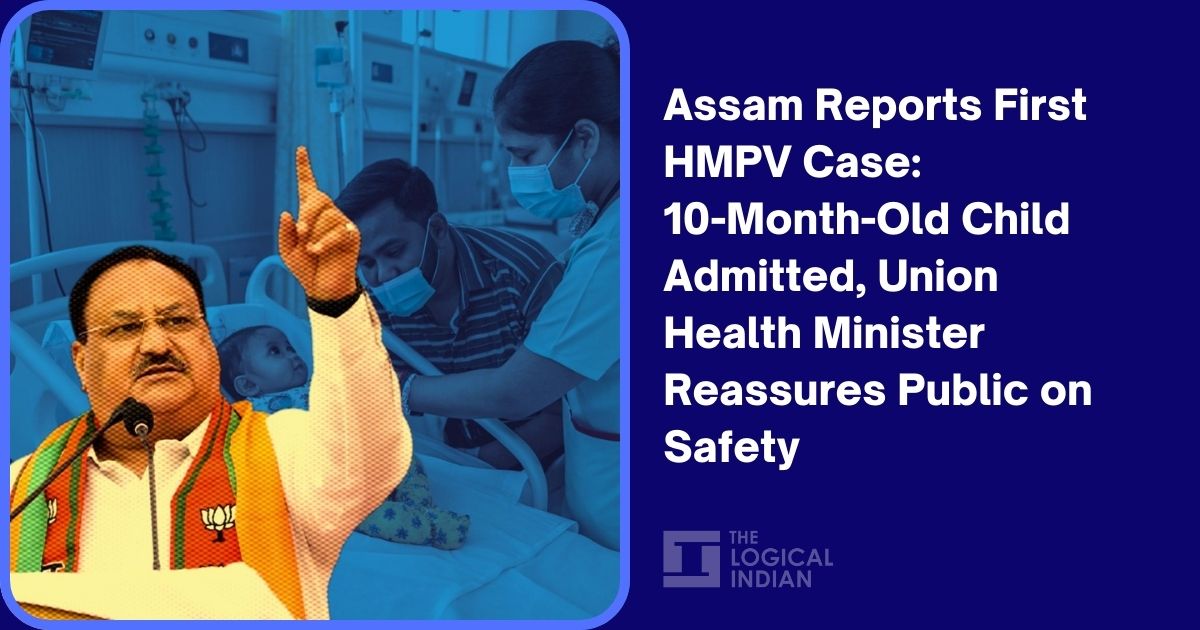 |
|
The emergence of Human Metapneumovirus (HMPV) in India has prompted a public health response, with the first confirmed cases reported in January 2025. The initial detection of thirteen cases nationwide, including a ten-month-old child in Assam, has raised concerns but also reassured statements from health officials. While the virus is not new, having been identified in 2001 and circulating globally, its appearance in India necessitates close monitoring and preventative measures, especially considering recent outbreaks in China. The initial cases presented with mild, cold-like symptoms such as cough and fever, highlighting the largely self-limiting nature of the infection for the majority of those affected. However, the vulnerability of young children and individuals with compromised immune systems necessitates a cautious and proactive approach to managing the potential spread of the virus.
The Union Health Ministry's swift response included public reassurances that there is no immediate cause for widespread alarm. Health Secretary Rajesh Bhushan emphasized the mild and self-limiting nature of most HMPV infections, while Union Health Minister J.P. Nadda highlighted the preparedness of the country's health systems and surveillance networks. The fact that no unusual surge in respiratory illnesses has been detected and that infected individuals lacked recent travel history suggests local transmission as the primary mode of spread. This contrasts with the initial concerns over potential importation of the virus from countries experiencing outbreaks, particularly China. The focus shifted towards strengthening existing infrastructure and implementing preventative strategies to minimize further transmission.
The response to the HMPV cases involves a multi-pronged strategy focused on early detection, public education, and resource allocation. Hospitals across India are being urged to establish ‘flu desks’ for the prompt identification of respiratory illnesses. This initiative includes targeted training for healthcare professionals to accurately diagnose HMPV and other similar respiratory viruses. Simultaneously, comprehensive public health campaigns are underway to educate the public about preventive measures, emphasizing hand hygiene, avoiding contact with infected individuals, and promptly seeking medical attention when symptoms arise. These campaigns aim to empower individuals to protect themselves and their families from infection and potential complications.
The experiences of families affected by HMPV highlight the importance of early diagnosis and prompt medical intervention. The anxiety experienced by a mother in Assam upon noticing cold-like symptoms in her infant underscores the public’s need for information and accessible healthcare. The swift recovery of her child after receiving appropriate treatment underscores the importance of early medical care. Local healthcare workers are playing a crucial role in educating parents about the early recognition of HMPV symptoms, facilitating timely intervention and mitigating potential health crises. The collaborative effort between healthcare professionals and communities is crucial in managing the impact of this respiratory virus.
The emergence of HMPV cases adds another layer of complexity to India's ongoing public health challenges, particularly considering the lingering effects of the COVID-19 pandemic. Many healthcare facilities continue to operate at near capacity, straining resources. The government faces the challenge of ensuring adequate resource allocation for both HMPV management and the ongoing response to COVID-19. This necessitates strategic planning and careful resource allocation to avoid overwhelming the system and ensure timely and effective care for all patients. Experts emphasize the critical need for increased awareness and testing for respiratory viruses, including HMPV, during peak season to effectively control spread and prevent unnecessary complications.
The rise of HMPV cases underscores the continuous need for public health preparedness and community vigilance. This event serves as a reminder of the dynamic nature of infectious diseases and the importance of proactive measures. The need to foster empathy and support for affected individuals, while promoting education and preventative measures, is paramount. Open dialogue about preventive strategies, resource allocation, and challenges facing healthcare systems is crucial in navigating this public health challenge effectively. Engaging in discussions on how communities can best support vulnerable populations and ensuring access to quality healthcare for all is essential in minimizing the impact of HMPV and similar outbreaks in the future. The collaborative spirit and proactive approach will be key to mitigating risks and safeguarding public health.
